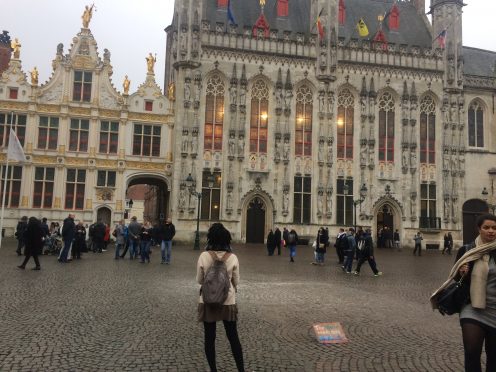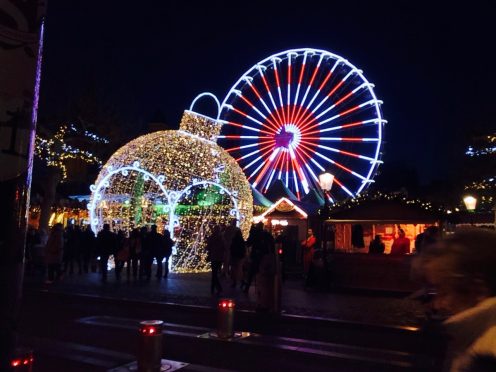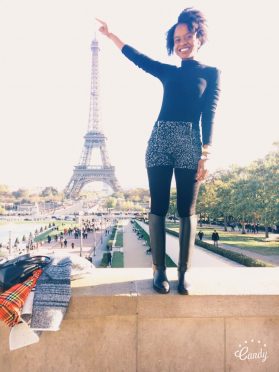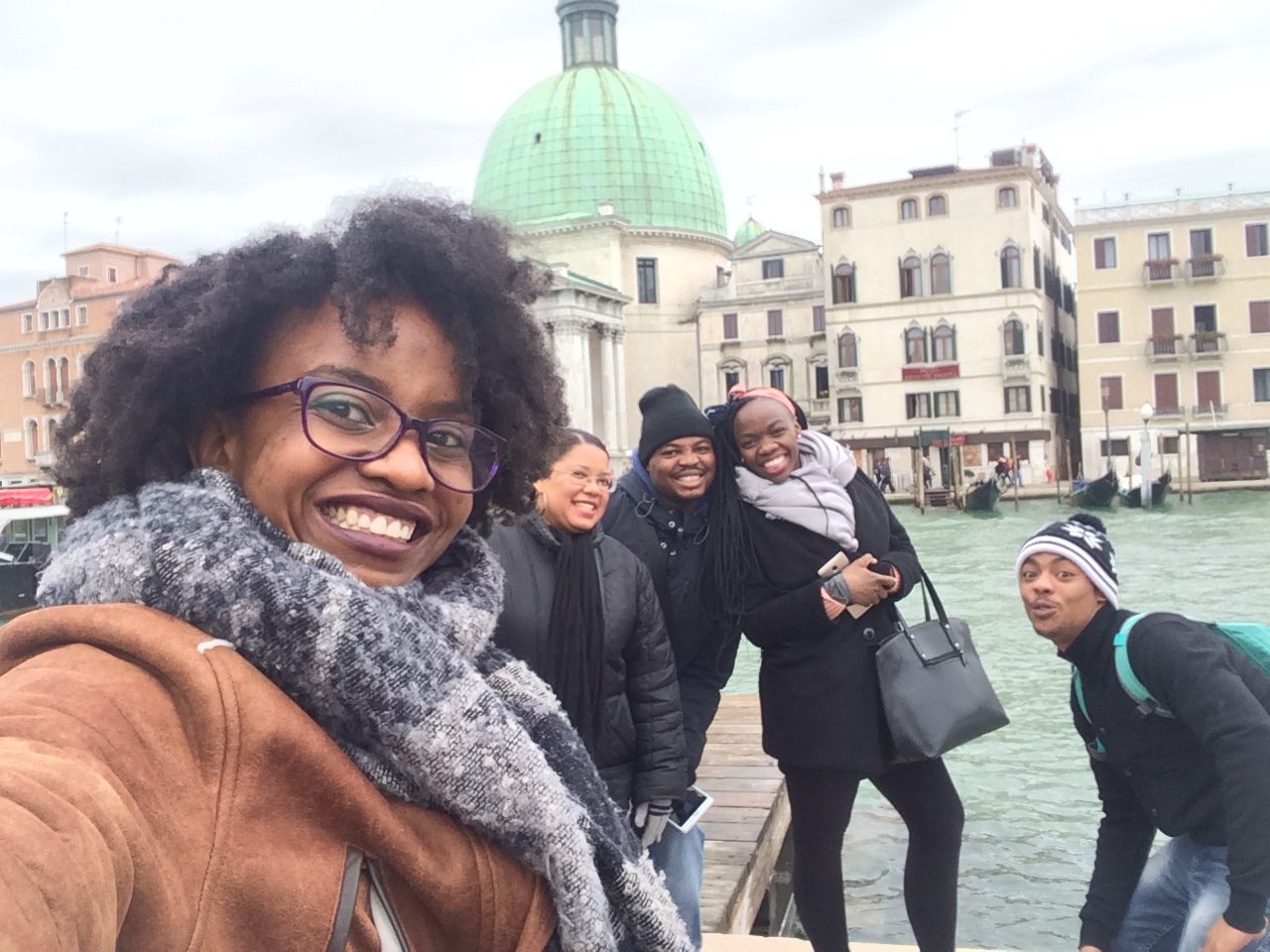Pre-departure:
Preparing for departure was not as hectic, as I thought it would be. I think the help that the Stellenbosch International Office provided made the process less stressful. I also realized that the quicker I decided to deal with all the administration of the trip: choosing courses and submitting my travel bursary agreement, the quicker I could finalize my travel details.
On the other hand, communication with the host university (Maastricht University) was more of a strain: sending documents and communicating only by email between 09:00 and 11:30 every day made getting through everything a tad tedious. However, overall, the process was not as demanding and they were as helpful as possible, as I could not speak to them directly on the phone.
What was of concern was the fact that the host, and home university did not provide clarity on the different processes and procedures regarding the MVV sticker and Visa applications and collection. In this case, I am not certain if this holds for other students, but the MVV sticker and the visa are not the same thing and thus may cause some confusion if an individual is traveling to another continent for the first time. As a result, not being aware of the differences may have resulted in not receiving the MVV sticker on time and thus not making it on time to the host university for the orientation day. (*Duly noted, and we will review our orientation and information processes.)
The visa process required a bit more time, but was done on my behalf by the host university: that way all is done and without any set-backs. I am aware that this may be more work for Stellenbosch university as they have agreements with so many other universities, but a bit more information regarding the different processes that extend to the visa applications when having the final meeting with the exchange students: this may prepare students who have never travelled a bit more. On the other hand, the packing and rules session provided by the Stellenbosch International Office was of great help, as I had never travelled abroad and thus did not know what would really be needed. The meeting gave more insight into what one really needs and that helped me when packing and deciding how to spend money, buy gifts and how to ration things out. Finding flights was an easy process: I searched for reasonably priced flights and I didn’t have to organize/learn the transport system upon arrival as the host university provided a pick up services to the accommodation provided.
Although much assistance is given, the process also requires an individual to be proactive, which was a great experience and learning curve for me, it gave me a little sense of accomplishment: having done things on schedule and giving the home and host universities enough time time to provide help where I needed it.
Experience at the Host University:

The two terms spent at University of Maastricht (UM) were interesting and worthwhile. I really appreciate the fact that the majority of the town speaks English so I did not have to deal with a language barrier. The majority of students in the Master’s programs were also exchange students so mingling and making friends was a easy process, although most exchange students were traveling in groups so the language barrier, in some cases, made it hard to maintain certain friendships. Coupled with the interesting, and different, characteristics of the host university, it was also different: UM uses the Problem Based Learning (PBL) system. I have grown very fond of this pedagogical system as it is more interactive and encourages students to engage each other with different ideas and questions.

We rarely had lectures: students attend weekly tutorials to complete, which they, later, discuss in tutorials with the lecturer, in the case of Master’s students, or another student, as in the case of some undergraduate courses. At the end of the tutorial the lecturer/tutor provides necessary information and provides comments on what the class discussed and, eventually, agreed upon. Presenting skills are also considered important, as a result, students were required to present on papers and ideas used in the courses as a way to show the lecturer what one understands, or the lack thereof. The classes were intimate, this allowed for easier interactions amongst students and the lecturer. Lecturers encouraged students to share their ideas, regardless of what students considered “correct”: they always emphasized the need to start something, complete it and receive correction without having students feel less able relative to others, something I thoroughly appreciated.
My appreciation of the PBL system stems from the different teaching system I have grown accustomed to in Stellenbosch: Stellenbosch University’s is based on lectures and tutorials which are conducted by other students. My personal experience is that students tend to keep their ideas to themselves unless they are, already, considered highly able (intelligent) to explain and teach what they think/know. I am of the view that that is the only stark difference between the two institutions. On the other hand, the similarity between UM and SU is that lecturers are friendly and often available to assist students, which encourages constant communication about the work being covered and providing assistance when one has failed to understand certain concepts.

The accommodation provided by the host university was amazing: I did not have to share my room and it was furnished with a bed, a desk. I shared a kitchen with 10 other exchange students. We attended an orientation day that helped a great deal: we were shown the town, where to find things, how to use the library services, where to find affordable food and how to get a bank account. Had I not attended the orientation day my experience would have been hard. I also had a chance to travel the continent, which was easier and cheaper than I had expected. I managed to visit Germany, Paris, Belgium, Barcelona, and Italy. The time spent traveling and experiencing different cultures was fun and added to my perspective and the Christmas markets in Germany, Maastricht and Barcelona were all such a delightful experience. It was interesting how different cultures celebrate Christmas and how much candy and potatoes people in the Netherlands consume.
Return to Stellenbosch:
Having spent four months in Maastricht, preparations to return to South Africa weren’t as lengthy as the preparations I had dealt with when leaving South Africa. The packing proved to be a task: having bought gifts and candy (Stroopwaffels) for people in South Africa, so that took a bit longer and required some tact. I also had to make sure that the host university had signed off the transfer of credits, that I had completed all assignments and written my exam. I also had to look for an affordable flight and find the simplest route to get to the Brussels-Zaventam airport in Belgium: a 2 hour train ride with one stop and to send my resident card back to the municipality or I would be fined 450 euros (not something I would like to experience).
Having never been to a different continent the exchange period has been one of the greatest experiences to date. I learnt that although we may consider South Africa a difficult place to live, I have learned to be appreciative even the smallest things that it has to offer: we do not have to pay to use most public bathrooms and when we do we do not have to pay much (I am aware that the law of one price is a real phenomenon but a euro is still plenty to spend on using the bathroom). I have also learnt to appreciate the variety we have in food: there are certain things that originate from the Netherlands, I mean they really appreciate potatoes, Churros and pastries yet I think we have some much more variety in South Africa. Although I should mention that their limited foods made eating much easier for me.
I have definitely seen new things that have given me a new perspective: regarding education, food, human interactions and socializing. I would really like to go back to Europe to explore more of the countries and see the other different historical aspects of Europe. They also have such great outdoor destinations that I would love to see when it is warmer outside. I would also like to consider taking up a master’s degree in human behaviour. Being at UM showed me that I can actually achieve goals if I am eager and do not consider myself incapable of achieving the goals that I have set out for myself. Being surrounded by a variety of people I realized that we all have different things to offer which make interactions that much more fruitful, as a result I am open to being a bit more assertive in my interactions with people. I also had the opportunity to attend a TedxTalk in Maastricht: It was on differences and perspective. I learnt that not all things have to follow a set of social norms, at all times at least. The speakers emphasized the need for people to purse their goals and dreams without overthinking how others would react to their version/definition of success.

